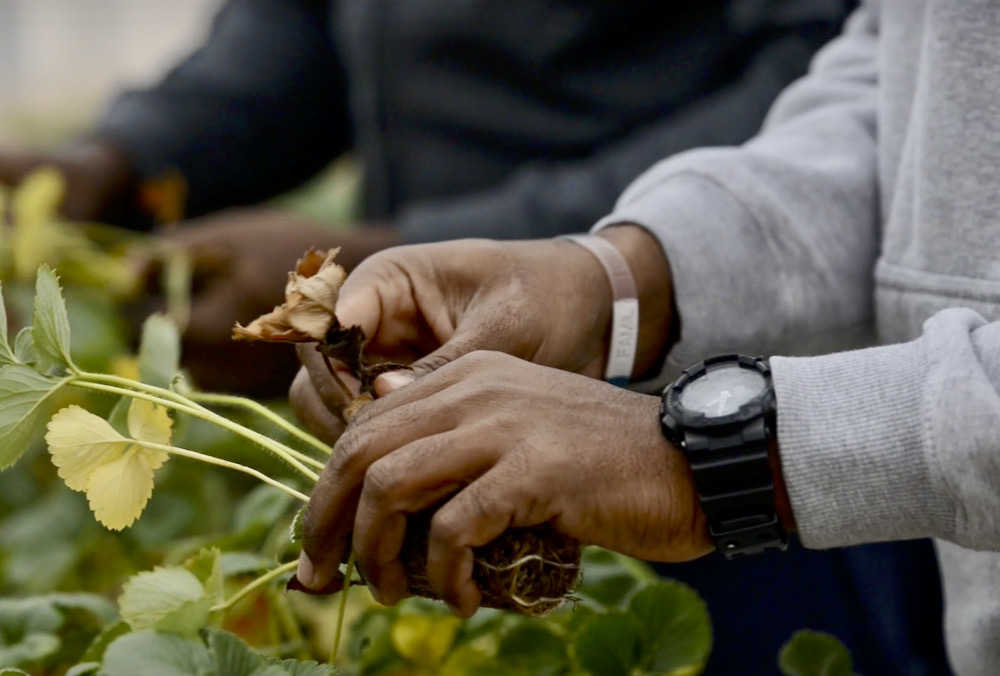Feds halt funds to offset TFW quarantine costs

Producers will bear the total cost of quarantining temporary foreign workers (TFWs) and seasonal workers in Ontario after Aug. 31.
“As long as the quarantine act is in place, we expected the funding to be in place,” said Bill George, chair of the Ontario Fruits and Vegetable Growers’ Association (OFVGA). “And it’s going to affect certain commodities more than others.”
At the onset of the pandemic, the federal government initiated a $1,500 per worker payment to offset costs of the mandatory 14-day quarantine for the duration of the Quarantine Act.
Despite lobbying by affected commodity organizations, the government reduced the funds to $750 per worker on June 16 and permanently suspended the program at the end of August.
Why it matters: An Ontario Fruit and Vegetable Growers’ Association cost analysis released in May indicates quarantine costs per worker range from $1,700 to $3,100, creating a significant financial burden on producers..
With COVID-19 test issues and strict regulations around a potential positive test, producers reported some TFWs required housing well beyond 14 days.
George said the apple sector is now bringing in harvest workers, and unless they arrived on or before Aug. 31, those employers won’t get funding.
“To me, it’s just disproportionately unfair to part of the sector that are bringing in workers later in the season,” he said. “For the most part, it is the higher figure of the hotel stay plus their wages that growers are incurring, certainly later in the season for sure.”
When the announcement came out, there was hope the federal government would roll back some quarantine protocols at the end of August and gradually reduce funding.
“That hasn’t been the case. Most workers still coming in aren’t fully vaccinated, so they’re still having to quarantine for the two weeks,” George said.
“Some workers are coming in with vaccinations that aren’t recognized by our government. So there’s still issues, and there’s still costs being incurred by our members.”
Ken Forth, president of Foreign Agricultural Resource Management Services, said the federal government lacked planning by pulling the funding before the end of the season.
“Why on earth wouldn’t they just say, ‘at the end of the growing season in 2021, we will no longer have it’,” said Forth. “We still would not have been happy because the Quarantine Act is in place, but go by what they say. But, what they say and what they do are two different things.”
The OFVGA represents 125 crops, all with different harvest seasons and some are not over.
“For example, apples aren’t starting to be picked till sometime in late August. We still bring people in the first part of September for apple harvest,” Forth said. “The big thrust of harvesters come in the season (produce) is going to be harvested in.”
As well, he said payments are slow to arrive, generally taking four to six months from time of application.
“If you held them in your own bunkhouse, it (the $1,500) would probably (cover) three-quarters,” Forth said. “But if you went to a hotel, it did 40 per cent.”
Edible horticulture crops are not high-margin businesses, and any added expenditure can be difficult for operations to absorb, added Forth.
“I think the disappointment is that, again, agriculture’s left behind. If the Quarantine Act was stopped, that’s a different animal because that’s what they promised.”
Workers’ mental health also suffered during weeks of isolation.
“That was very evident with the workforce this year. Then you layer on the problems with the testing with the Switch Health system,” George said.
“I had one worker in quarantine for 25 days because we couldn’t get the test results back. That’s an added additional cost on top of a two-week quarantine, more so the effect on the worker’s mental state.”
An indication from the federal government would be welcome regarding how foreign workers will be processed upon entering the country and whether they will have to quarantine.
George is already planning next year’s applications and doesn’t know if he should bring workers in two weeks early for quarantine purposes.
“Nobody really knows. Even if they’re fully vaccinated, we don’t know,” he said. “Not knowing what’s coming as far as next year is definitely a financial concern to the growers and stressful to the growers.”
If it becomes financially impossible to fill the labour shortage with TFWs or seasonal workers, the implications are huge, said George.
“Probably the better question to ask is, where does your food come from? Because it won’t be coming from Ontario,” he said.
“That’s how integral they are to food production in Ontario. There’s just no possible way, without temporary foreign workers, that we could operate the farms as we are currently.”
Source: Farmtario.com

